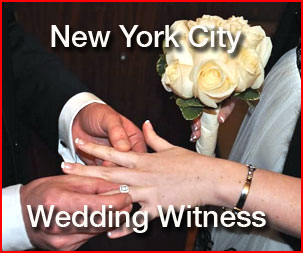Last week, Facebook founder and CEO Mark Zuckerberg came under fire for saying he would not automatically censor Holocaust deniers from Facebook.
Mark Zuckerberg is not expressing sympathy with Holocaust deniers when he says he won’t automatically remove them from the Facebook news feed. His convoluted way of saying so may have missed the mark, but defending the right of people to post controversial or objectionable ideas on a free social media service should be a no-brainer. It’s a sad sign that anyone in America today should have to “walk back” any comment that defends the right of free expression.
Facebook has the right to censor content, as it’s a media platform that can operate by whatever standards it deems fit. And indeed it has censored content, putting dollars before principles and obediently obeyed repressive laws overseas in order to gain traction outside the U.S. It follows speech codes set by the Chinese government and governments in Europe that would never pass muster in the U.S. if they were applied by a government agency.
But the demands that Facebook censor content show the diminished respect for the concept of free speech and expression. Facebook enables users to block content they find objectionable and even block other users from their news feed if they are not to your liking. That people clamor for Facebook to go further and eliminate whole blocks of content simply because many people object flies in the face of what we Americans embrace as a concept of free expression.
Free speech is an end unto itself, it is a moral absolute. Freedom of expression is a basic human right that universal and inviolate. It is enshrined in the First Amendment of the U.S. Bill of Rights as well as the United Nations’ Universal Declaration of Human Rights (Article 19).
Social media is not obligated to the same concepts of free expression that are guaranteed human rights. When you sign up for Facebook, Twitter, Instagram, or whatever comes next, you are agreeing to terms of conditions that enable the service provider to regulate how they wish. But our sense of fair play in allowing free expression in these realms is an important one.
Americans have rightfully embraced the saying that is often attributed to Voltaire (though it actually comes from biographer Evelyn Beatrice Hall who summarized his idea), “I disapprove of what you say, but I will defend to the death your right to say it.”
And to stand up for free speech is to undoubtedly join questionable company. You’re going to be standing up for Klansmen, pornographers, Holocaust deniers, pedophiles, and religious extremists. You will defend the rights of people who want to see you diminished, or maybe even dead. Sadly, the distinction of supporting someone’s right to say something as opposed to supporting what they say is being stripped away. Even long-standing organizations that have famously jumped to the defense of free speech—specifically the once-reliable A.C.L.U.—are now hedging and making exceptions in the toxic partisan atmosphere of our contemporary era.
Much of the speculation today surrounding the ascent of alternative right elements in our national politics is whether or not we are heading down the slippery slope to a fascist state. If the American far right is excelling in bringing us closer to fascism, its greatest victory so far has been in getting its opposition to embrace fascist elements wholesale while waving the flag of anti-fascist virtue. Every “punch a Nazi” post you see on social media, every embrace of the very concept of “hate speech” is a steep step down that terrible slippery slope.
Please remember: there is a reason that fascists are rightly reviled, it’s because they do things such as… restricting freedom of speech under the guise of protecting the populace from harmful ideas, advocating violence against those they disagree with, or claiming some higher moral right to speech than others. “That’s not free speech, that’s hate speech,” is among the most fascistic mantras in common use today.
Let’s all sides agree to let others have their say. You don’t have to listen or agree, but recognize that free speech is a human right that no one should be able to infringe. Defending the right of someone to express their ideas is not the equivalent of endorsing those ideas: teach that in schools and put up ads around town about it.
There can be no equivocation. There is no other speech but free speech. People have died for it in America and around the world. Don’t accept any substitutes.











